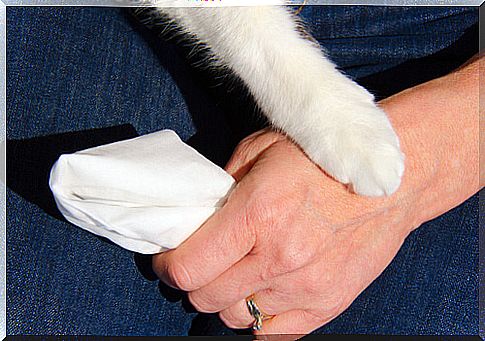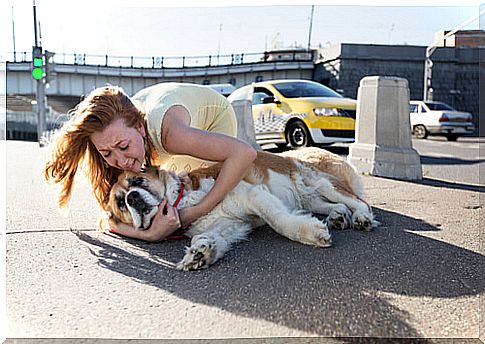How To Cope With The Loss Of A Pet?

Most of us share an intense love and special bond with our animal companions. It is natural to be devastated with sadness at the loss of a beloved pet. Pain can often feel overwhelming and trigger all kinds of painful and difficult emotions.
While some people may not understand how you felt about your pet, you should never feel guilty or ashamed about it. Instead, use these healthy ways to cope, comfort yourself and others, and begin the process of moving on.
Why does the loss of a pet hurt so much?
For many of us, a pet is not just a dog or a cat, but a beloved member of our family. They bring company, fun, and joy into our lives. A pet can add structure to your day, keep you active and social, help you overcome setbacks and challenges in life, and even provide you with meaning or purpose.
So when a beloved pet dies, it is normal to feel painful sadness. Although we all respond to the loss of a pet in different ways, the level of grief will depend on factors such as the circumstances of the death and the age of the pet, among others.
Generally, the more important your pet is to you, the more intense the emotional affect you will feel. The role the pet played in your life can have an impact. If you lived alone, and the pet was your only company, it can be even more difficult.
Whatever the circumstances of your loss, remember that the grief is personal, so you shouldn’t be ashamed of how you feel. While experiencing loss is an inevitable part of pet ownership, there are healthy ways to deal with grief.

The grieving process after the loss of a pet
Grief is a highly individual experience. Some people find that grieving the loss of a pet comes in stages. Feelings such as denial, anger, guilt, depression, and finally acceptance and resolution are experienced.
Others find that their pain is more cyclical, coming in waves or a series of ups and downs. The moments of lows are likely to be deeper and longer at first. Then they gradually get shorter and less intense as time goes on.
The grieving process cannot be forced or rushed, and there is no normal schedule for it. Some people begin to feel better within weeks or months. For others, the grieving process is measured in years.
Feeling sad, shocked, or just is a normal reaction to the loss of a beloved pet. Exhibiting these feelings does not mean that you are weak or that your feelings are somehow out of place. It just means that you are mourning the loss of a pet you loved, but you shouldn’t feel ashamed.
Coping with grief after the loss of a pet
Pain is a normal and natural response to death, and it can only be treated over time. But there are healthy ways to deal with grief. Here are some suggestions:
Don’t let anyone tell you how to feel
Your grief is yours and no one else can tell you when it’s time to move on or get over it. Allow yourself to feel what you feel, without shame or judgment. It’s okay to be angry, cry, or not cry. It’s also okay to laugh, find moments of joy, and let it go when you’re ready.

Reach out to others who have lost pets
Check web support groups and pet loss hotlines. If your own friends and family aren’t sympathetic to the loss, find someone who is. Often times, another person who has also experienced the loss of a beloved pet can better understand what you are going through.
Create a legacy
Preparing a memorial, planting a tree in memory of your pet, compiling a scrapbook or photo album, you can create a legacy to celebrate the life of your animal companion. Remembering the fun and love you shared with your pet can help you move on.
Beware
The stress of loss can quickly deplete your energy and emotional reserves. Taking care of your physical and emotional needs will help you get through this difficult time. Spend face-to-face time with the people who care about you, eat a healthy diet, get a good night’s sleep, and exercise regularly to release endorphins and improve your mood.
If you have other pets, try to maintain your normal routine
Surviving pets can also suffer when another pet dies. Maintaining your daily routines, or even increasing exercise and play time, will not only benefit surviving pets in terms of their feelings, but can also help elevate your mood and outlook.
Seek professional help if you need it
If your pain is persistent and interferes with your ability to function, your doctor or a mental health professional can evaluate your sadness and depression.









